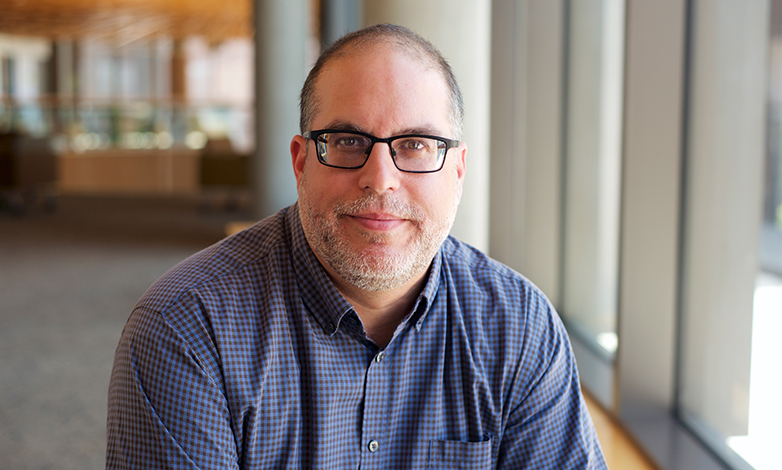Leopoldo J. Cabassa, professor at the Brown School and co-founder of WashU’s Center for Holistic Interdisciplinary Research in Psychedelics (CHIRP), is urging greater focus on equitable access as psychedelic-assisted therapy gains momentum in mainstream mental health care.
In a recent episode of the podcast Survival in the Trenches: Life Beyond Loss, Cabassa, who also co-directs the Brown School’s Center for Mental Health Services Research, discussed the promise of psychedelic therapy for conditions like treatment-resistant PTSD, depression, as well as the challenges that could hinder fair and widespread access.
A nationally recognized expert in health equity and implementation science, Cabassa emphasized the need to prioritize equitable access from the outset. Without intentional planning, he warned, the treatment could be available only to the privileged.
“This is great,” Cabassa said of the emerging treatment on the podcast, “but the moment this enters the market, if people are not thinking about who’s going to use this treatment? Who’s going to deliver it? What about the people who are most in need? This could all fall apart, or this is going to be a treatment just for very high-income individuals that have the resources.”
While studies show encouraging results, Cabassa cautioned that psychedelics alone are not a cure-all.
“We are not going to solve this problem just with a pill,” he said. “There has to be this psychosocial psychotherapy component, and this is a paradigm that if it’s done well combines those in a very intricate manner that helps heal the individual of these different issues that our current treatments don’t.”
He also noted how this approach represents a significant departure from conventional mental health care, which often relies on brief appointments and medication management.
“This is a really different type of care,” he said. “A whole different set of time, resources, and expertise are needed. So, it’s a paradigm shift in our mental health system, and I don’t know if it’s ready for this.”
Cabassa’s interest in psychedelic therapy began in the summer of 2023 when he participated in a psychedelic training program for social workers and nurses, two groups at the frontlines of mental health care. The training opened his eyes to its potential but also raised critical questions.
“I got to see the power and the promise of this particular type of care,” he shared. But it also left him with big questions:
“Who is the workforce? How will this be delivered to low-income Latino or Black populations, especially in a mental healthcare system that’s broken already?”
CHIRP, the interdisciplinary center co-founded by Cabassa, Ginger Nicol, professor of psychiatry at WashU Medicine, and Rebecca Lester, professor of anthropology in Arts & Sciences, brings together clinicians and scientists from various disciplines across WashU to conduct clinical research on psychedelics as medical treatment.
Listen to the full episode: Survival in the Trenches: Life Beyond Loss
